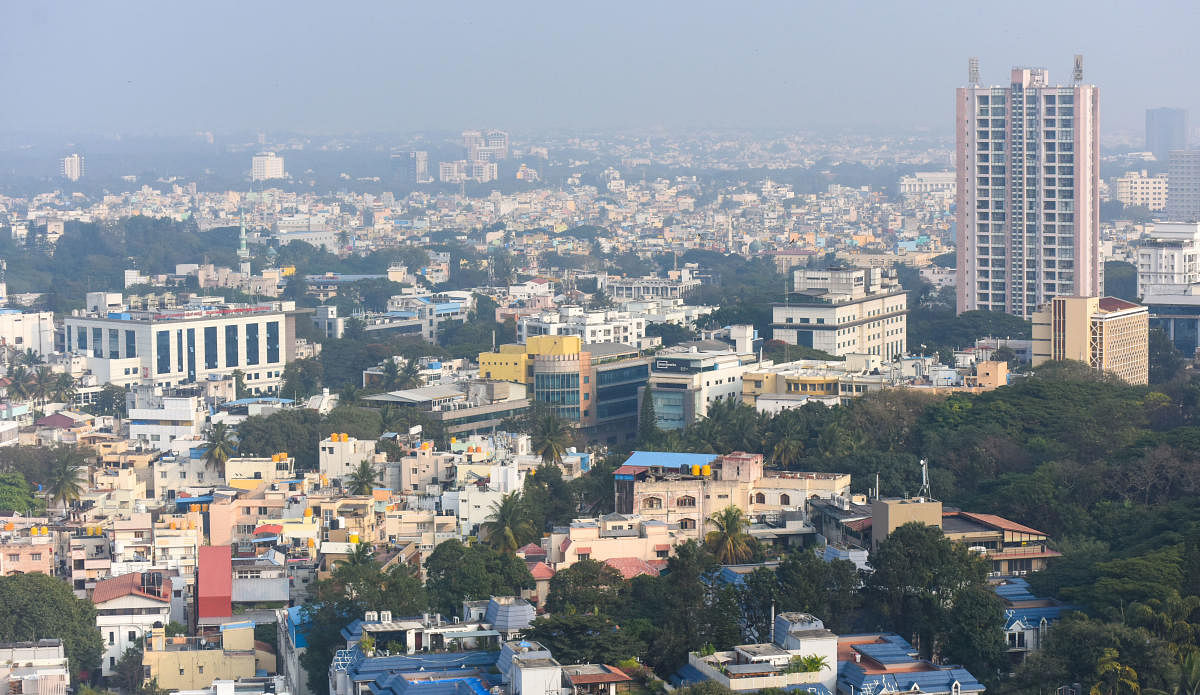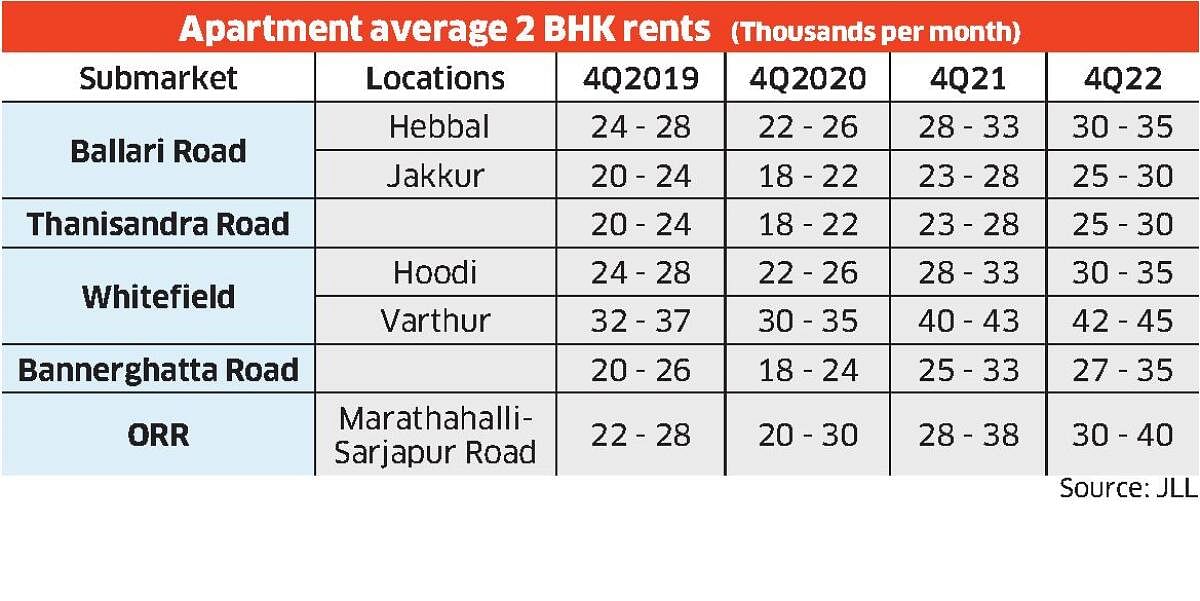

If you are looking to rent a property in Bengaluru this year, brace yourself for an unprecedented rental surge. After making a consistent recovery from the pandemic slump since March 2022, rents in the city are leaping forward.
“I have seen a property at HRBR Layout in Kalyan Nagar, worth Rs 20,000 in rent being rented out at Rs 40,000,” said a RERA-licensed broker, who did not wish to be identified, adding that this is not an isolated case. “Landlords are greedy. It doesn’t mean properties are improving but demand is high and landlords are hiking rents,” he pointed out.
A tenant from Whitefield who also wished to stay anonymous, agreed. When his two-year tenancy contract expired this year, he was faced with a 57% jump in his rent from Rs 14,000 to Rs 22,000, for his 1BHK home. Unable to afford it, he was compelled to seek refuge elsewhere in the area.
“People who already paid a higher rent last year will not see this kind of 30-40% jump this year. People who are coming now, moving into a property which was either not occupied or occupied at lower rent will see a jump happening,” noted Saurabh Garg, co-founder of proptech firm NoBroker.
Underlying rationale
The Covid-19 pandemic exacerbated a demand-supply mismatch of housing units in India’s Silicon Valley, as restricted mobility disturbed construction cycles by six-eight months. On the other hand, with companies calling employees back to offices, demand for rental housing continues to grow, giving landlords the upper hand.
“In the last five years, demand has been way ahead of supply in the case of Bengaluru,” said Vivek Rathi, who heads research at property consultancy Knight Frank India.
“The highest demand-supply mismatch is in Bengaluru and that is why the highest rent increase is also in here. Now, with offices opening up, people are returning to town leading to a greater tenancy demand, while supply has not kept up,” Garg argued.
A landlords’ market
From demanding resumes to income records, besides enormous deposits, email approvals for guests to stay over and other stringent curbs - Bengaluru’s landlords have turned rather infamous.
To add to tenant woes, home owners are now blatantly demanding higher-than-listed rents, alongside listing different rental prices on multiple property tech platforms after receiving queries from interested tenants.
“Properties I went to look at within a day or two of being listed on online brokerage platforms were already booked. Landlords then openly proposed that I pay more to rent the property,” attested Harsh Vitra, an engineer from Mumbai who moved into the city last month. “I was also grilled with multiple questions on topics ranging from my religion to caste, eating habits and if I planned on bringing female companions home,” he added.
Any end in sight?
Industry veterans gauge it could be three to four years before supply begins to inch closer to demand levels, thereby cooling rent inflation for residential properties in the city.
While construction costs are moderating, interest rates remain elevated, which is prompting both parties - developers and buyers - to adopt a cautious approach, explained Rathi. Furthermore, any project undertaken today must navigate an average construction cycle of three to five years before completion, he added.
Meanwhile, “you can expect demand to stay high, especially for properties in gated societies”, said NoBroker’s Garg.